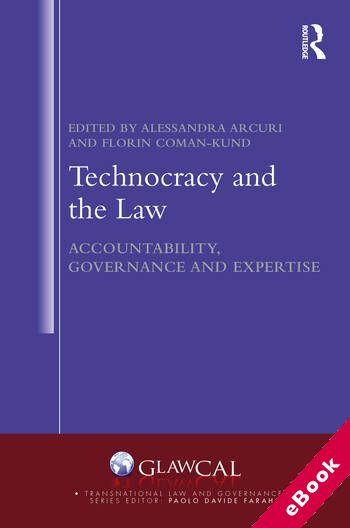
The device(s) you use to access the eBook content must be authorized with an Adobe ID before you download the product otherwise it will fail to register correctly.
For further information see https://www.wildy.com/ebook-formats
Once the order is confirmed an automated e-mail will be sent to you to allow you to download the eBook.
All eBooks are supplied firm sale and cannot be returned. If you believe there is a fault with your eBook then contact us on ebooks@wildy.com and we will help in resolving the issue. This does not affect your statutory rights.
Technocratic law and governance is under fire. Not only populist movements have challenged experts. NGOs, public intellectuals and some academics have also criticized the too close relation between experts and power. While the amount of power gained by experts may be contested, it is unlikely and arguably undesirable that experts will cease to play an influential role in contemporary regulatory regimes. This book focuses on whether and how experts involved in policymaking can and should be held accountable.
The book, divided into four parts, combines theoretical analysis with a wide variety of case studies expounding the challenges of holding experts accountable in a multilevel setting. Part 1 offers new perspectives on accountability of experts, including a critical comparison between accountability and a virtue-ethical framework for experts, a reconceptualization of accountability through the rule of law prism and a discussion of different ways to operationalize expert accountability. Parts 2-4, organized around in-depth case studies, shed light on the accountability of experts in three high-profile areas for technocratic governance in a European and global context: economic and financial governance, environmental/health and safety governance, and the governance of digitization and data protection.
By offering fresh insights into the manifold aspects of technocratic decision-making and suggesting new avenues for rethinking expert accountability within multilevel governance, this book will be of great value not only to students and scholars in international and EU law, political science, public administration, science and technology studies, but also to professionals working within EU institutions and international organizations.